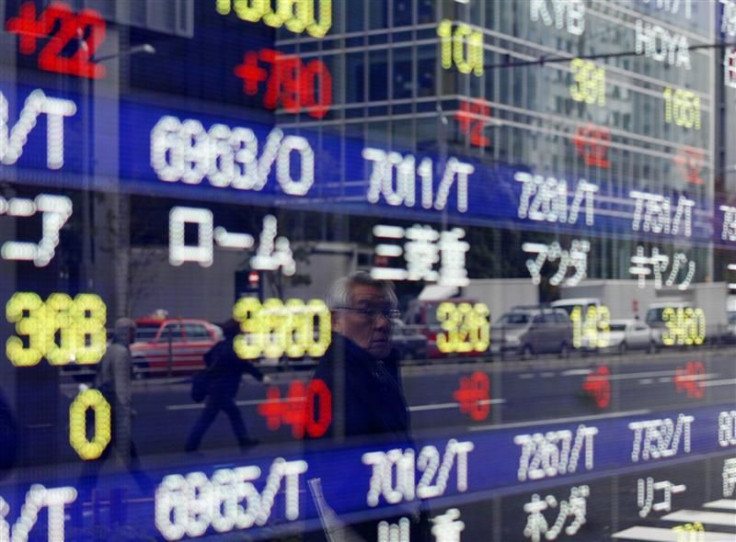Weekly Roundup: Asian Markets Mixed On Disappointing Japan, China Data

Asian markets remained mixed in the week as indications of the faltering economic growth in Japan and China continued to weigh down the investor confidence.
Japan's Nikkei 225 Stock Average marginally dropped 0.07 percent and closed at 8863.30. South Korea's Kospi Index was marginally down 0.05 percent and closed at 1995.17.
Markets opened Monday on a negative note as a report by the Bank of Japan indicated that the general business conditions in the manufacturing sector in Japan worsened in the quarter ending Sept. 30, indicating that the country’s economy continued to be affected by the weakening exports following the soft global demand. According to the data released by the central bank Monday, the Tankan large manufacturing index dropped to minus 3 in the quarter, down from minus 1 in the previous three months.
Meanwhile, the Bank of Japan decided to keep its monetary policy unchanged. After its policy decision meeting Friday, the central bank said that its board had decided to keep rates at between zero and 0.1 percent.
Hong Kong's Hang Seng Index advanced 0.8 percent and closed at 21012.38. In China, markets were closed in the week due to holidays.
China's manufacturing activity in September continued to remain in the phase of contraction, increasing the concerns over a slowdown in the economic growth of the country. The data released by the China Federation of Logistics & Purchasing Monday showed that the Purchasing Managers' Index (PMI) rose to 49.8 in September, up from 49.2 in August.
But the index remains in the area of contraction since the reading is below 50. The shrinking of the manufacturing activity would increase fears of the likelihood of a sharp retardation in the economy.
China's non-manufacturing activity declined in September compared to that in the previous month, increasing the concerns over a slowdown in the economic growth of the country. According to the data released Wednesday by the National Bureau of Statistics and China Federation of Logistics and Purchasing, the non-manufacturing Purchasing Managers' Index (PMI) fell to 53.7 in September, down from 56.3 in August. The fall in the reading has revived the speculation that China would soon announce monetary easing measures to rejuvenate the country’s economic growth momentum.
Market sentiment turned positive to note that the U.S. manufacturing activity improved in September, alleviating the concerns about the weakening of the world’s largest economy. According to the data released Monday by the Institute of Supply Management, the manufacturing PMI rose to a four-month high of 51.5 in September from 49.6 in August.
In the U.S., the Automatic Data Processing released its National Employment Report Wednesday. The report, which is a measure of the monthly change in nonfarm private employment data based on the payroll data of approximately 400,000 U.S. business clients, rose by 162,000 in September, down slightly from the 189,000 gain in August.
India's BSE Sensex gained 0.9 percent and closed at 18938.46.
Economic reforms pushed by the Indian government continued to lift the market. The cabinet approved bills that would allow foreign direct investment up to 49 percent in insurance and pension sectors. The fresh dose of liberalization administered by the government is expected to further buoy the market.
Meanwhile, the lack of announcement on Spain's decision on whether to seek help from the newly declared bond-buying program by the European Central Bank is affecting the investor sentiment. Market participants expect Spain to ask for a bailout under the enhanced conditions credit line (ECCL), which will trigger the bond-purchasing operation by the ECB.
Investor sentiment turned positive after the European Central Bank confirmed in its policy meeting at Ljubljana, Slovenia, Thursday that it was ready to commence its bond-buying program which was aimed at reducing the debt burden faced by the euro zone. On the monthly policy meeting of the ECB held Thursday, President Mario Draghi made it clear that the Outright Monetary Transactions program would be activated as soon as the conditions were met by the governments.
Major gainers: Shares of Tata Motors rose 4.8 percent. Shares of State Bank of India climbed 4.5 percent and those of Maruti Suzuki advanced 2.8 percent.
© Copyright IBTimes 2024. All rights reserved.











